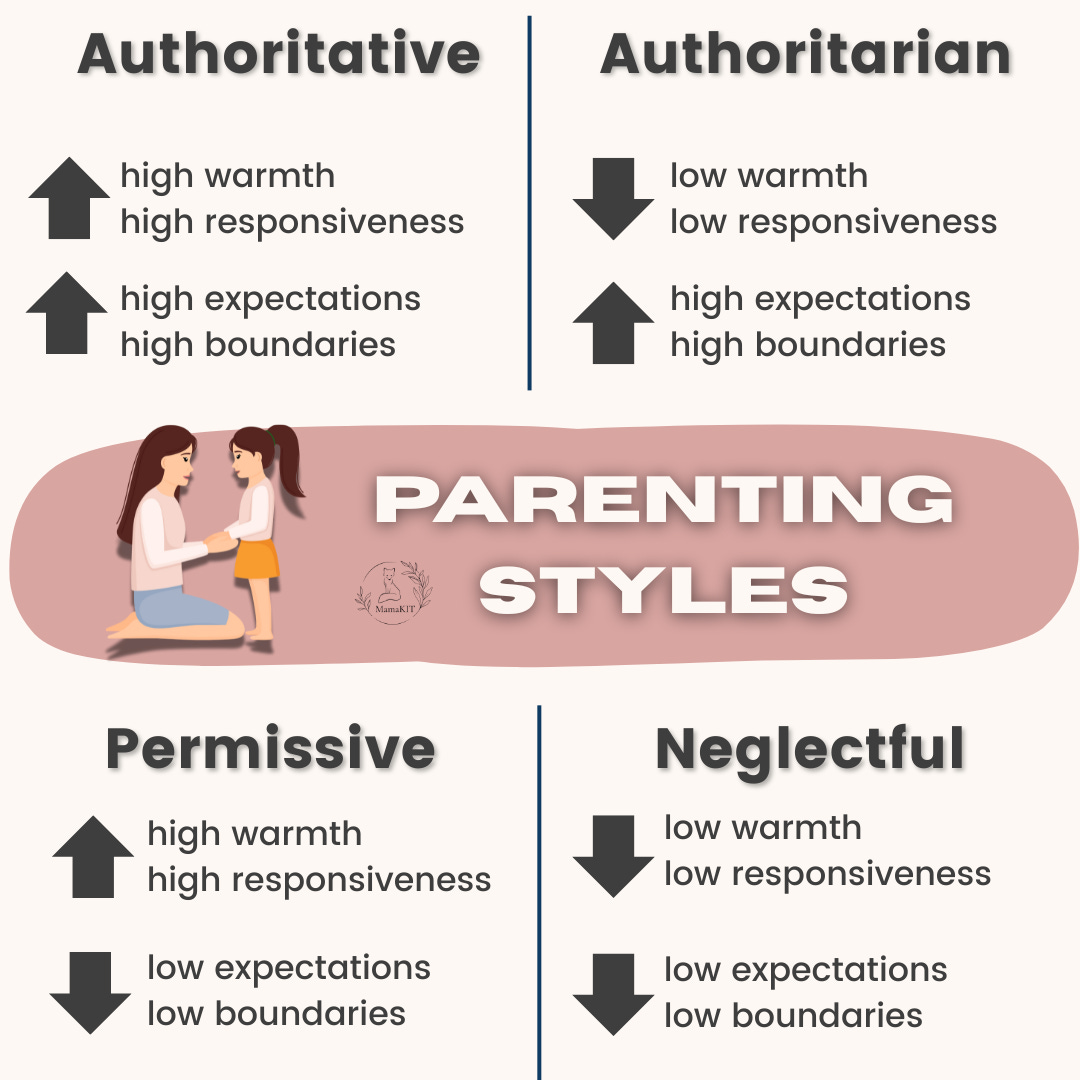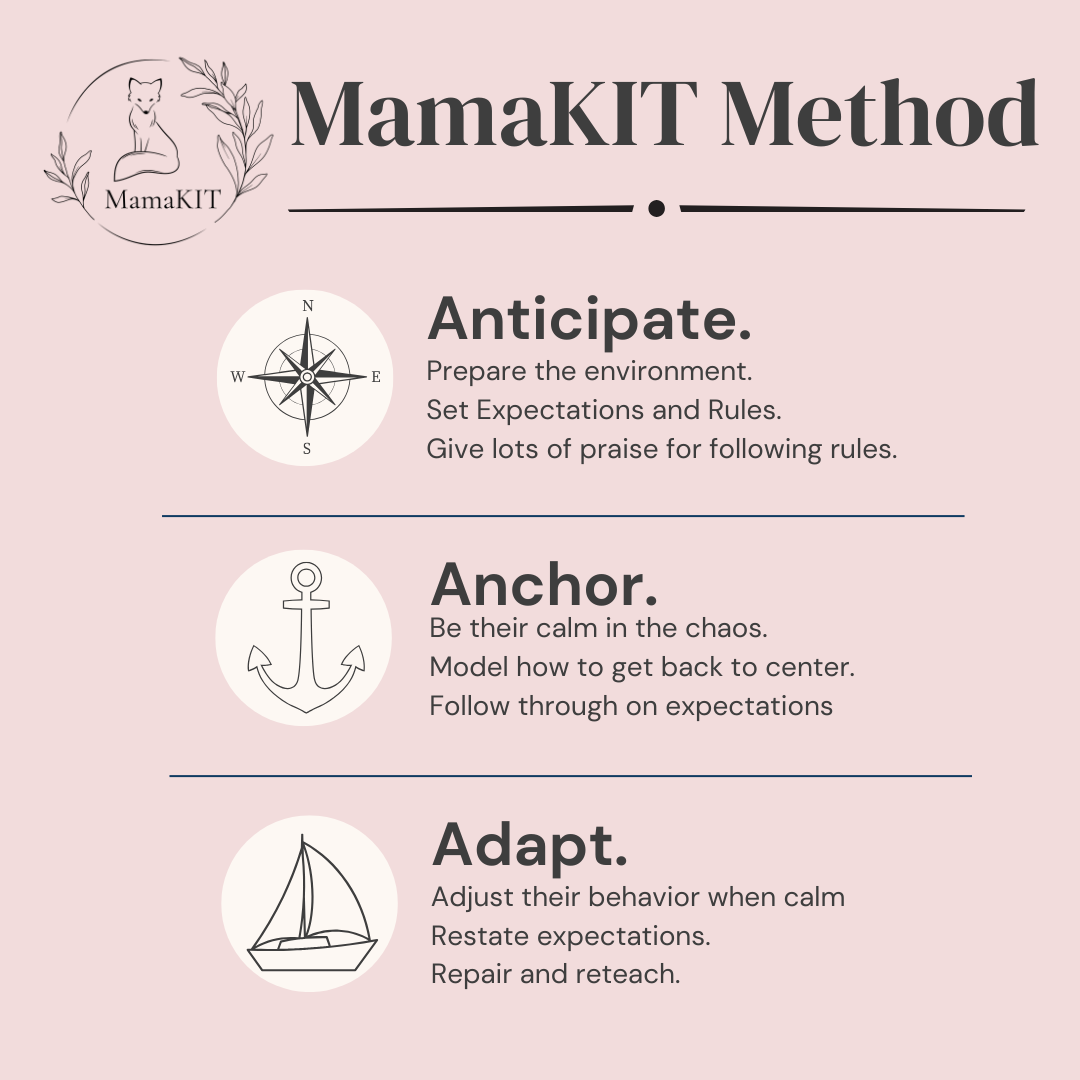DISCIPLINE AND GENTLE PARENTING- THE MISSING LINK
Realistic Approach to Discipline That Builds Connection, Not Control

“Strict But Fun”: How We Confuse Gentle with Permissive
We were sitting with my mother. My husband and I. We were telling her how it’s funny to see my husband’s father interact with our two-year-old son, because let’s be real, it can be a trip trying to navigate toddler independence and self-directed behavior without losing your actual mind.
She nodded and said something I’m sure many millennials have heard:
“Well, Caroline was raised in a strict household. We still had fun, though.”
It was out of context, but it doesn’t matter. You have to read between the lines.
She meant that with pride—that her version of parenting was the correct version. That “strict” meant “structured” or “strong.” But let’s call it what it was: authoritarian.
A.K.A. compliance over everything.
Did it get results? Sure. But it also meant suppression over expression. Control over connection. Now she wonders why her kids don’t really want to talk to her. (Throwback to another infamous comment of hers: “Parents aren’t supposed to be friends with their kids.” But we’ll get into that another time.)
The Discipline Discourse (Or: The Youths Are Too Soft and It’s All Avocado Toast’s Fault)
I’ve heard other parents get the same commentary:
“Your kid needs more discipline.”
“You let them get away with too much.”
“You’re the parent, not their friend.”
There’s this cultural script that says if we’re not punishing, we’re permissive. That if we’re validating feelings, we’re creating monsters. That our kids are “soft,” and it’s our fault for not being more like the belt-wielding ‘80s dads of yesterday.
But here’s the deal: Gentle parenting is not permissive parenting.
It's a buzzword, and like all buzzwords, it’s been chewed up and spat out by social media until it sometimes resembles moms in beige linen whispering “there, there” as their kids throw gluten-free veggie sticks like ninja stars.
But at its core, gentle parenting is not about letting your child do whatever they want.
It’s about teaching through connection, rather than control.
Wait, So What Is Gentle Parenting?
Gentle parenting combines attachment theory, emotion regulation, and firm yet kind boundaries. It’s rooted in decades of research from folks like John Bowlby, Diana Baumrind, Magda Gerber, and modern thinkers like Sarah Ockwell-Smith and Victoria Chen¹–³,⁷.
According to Chen (2025), gentle parenting means:
High expectations
High emotional support
Respectful communication
Replacing punishment with guidance
Being the calm in your child’s storm⁷
Permissive parenting, on the other hand, is characterized by low expectations and little to no follow-through. That’s not gentle. That’s avoidant. And a lot of us fall into that trap not because we’re lazy, but because we’re overcompensating.
The Great Generational Pendulum Swing
Let’s be honest: some of us are swinging the other way hard.
We don’t want to yell. We don’t want to shame. We don’t want to bribe, threaten, or spank. So instead… sometimes we freeze. We let things go. We whisper, “This isn’t a big deal,” even when the couch is covered in yogurt and our cortisol is on fire.
Why? Because our inner child is whispering:
Don’t be like them. Don’t become her.
We’re not trying to raise best friends. We’re trying to raise humans who feel safe enough to grow. And yes, that means boundaries. But it also means self-regulation, not just for them, but for us. We have to now parent our inner child with the self-regulation we never received (thanks, Boomers). Now we are under-financed, overstimulated, done with unprecedented times, and you want to see your grandchildren. SURE NO PROBLEM!
What the Research Says:
What is the most effective parenting style for long-term outcomes?
Authoritative parenting.
Not authoritarian. This always gets muddied²,⁸.
Let’s pause for a second because even academics confuse this:
Authoritarian = “Because I said so.”
Authoritative = “I see you. Here’s what we’re going to do.”
Authoritarian parenting is strict and rigid.
It’s all about obedience, fear, and control.
Think: zero negotiation, punish-first, and emotions are weak energy.
That was the vibe in a lot of our childhood homes.
Authoritative parenting, on the other hand, is characterized by a structured and supportive approach.
It’s the middle path that combines high expectations with high warmth.
Boundaries with empathy
Consistency without cruelty
And this is where gentle parenting actually belongs, squarely under the authoritative umbrella²,⁷.
It includes:
Clear, consistent boundaries
Collaborative problem-solving
Developmentally appropriate expectations
Emotional attunement
And neuroscience backs it up.
According to NIH research, warm and responsive caregiving builds better stress responses and emotional regulation over time⁶,⁹.
Our calm literally becomes their calm.
We’re not just raising kids—we’re wiring brains.
But Let’s Talk About Toddler Brains for a Minute
Toddlers are not tiny adults.
They are emotionally charged chaos goblins with half-baked frontal lobes.
The prefrontal cortex, which governs impulse control and logic? Still under construction.
The amygdala (a.k.a. the drama queen of the brain)? Fully operational.
This means they feel everything and have no internal tools to handle it.
When your toddler is losing their mind over the blue cup, it’s not manipulation.
It’s a dysregulated nervous system asking for help⁴–⁵.
And they need your brain to help them find their center again.
Remember, YOU are the adult.
Anticipate, Anchor, Adapt: A Realistic Discipline Framework
Forget sticker charts and time-out corners. Try this:
Anticipate
Prepare the environment.
Set expectations and rules you can follow through on.
“We have safe hands and listening ears.”
(Repeat this throughout the day.)
Give heads-ups and offer choices:
“We’re leaving the park in 5 minutes. Want one more slide or swing?”
Predictability soothes nervous systems.
Anchor
Be their calm in the chaos.
You cannot add gasoline to the fire.
“You’re angry. We have to have safe hands and not hit, but I’m right here.”
“Let’s go sit in the car for a few minutes. I’ll sit with you. We can’t stay on the playground if we don’t have nice hands.”
You can hold the line and hold space.
Sit with them. Model deep breaths. Reflect later.
Adapt
Reevaluate afterward to teach and repair.
“You were feeling angry? I know—it’s hard when we have to share. Next time you’re mad, what can you do instead of throwing the toy?”
This is where learning happens.
Not in the meltdown, but after, when the brain can absorb it.
The Most Underrated Parenting Tool: Repair
Even if you yelled. Even if you did the thing you swore you wouldn’t.
There is always room for repair.
Repair teaches:
Conflict isn’t the end of connection
Accountability is safe
We can grow from challenging moments
And if you didn’t get that kind of repair as a child (hi, same), it can feel foreign. But it’s worth it.
And If She Ever Wanted To Try…
Sometimes I wonder what it would be like if my mother came to me and said:
“I was strict. I didn’t know a better way. I’m sorry.”
Wouldn’t that go a long way?
I don’t hold my breath.
I remember that healing doesn’t always begin with an apology.
Sometimes it begins with refusing to repeat the pattern.
I can do better.
References
¹ Bowlby, J. (1988). A Secure Base: Parent-Child Attachment and Healthy Human Development. Basic Books.
² Baumrind, D. (1967). Child care practices anteceding three patterns of preschool behavior. Genetic Psychology Monographs, 75(1), 43–88.
³ Ockwell-Smith, S. (2016). The Gentle Parenting Book: How to Raise Calmer, Happier Children from Birth to Seven. Piatkus.
⁴ Center on the Developing Child at Harvard University. (2021). Brain Architecture.
⁵ Siegel, D. J., & Bryson, T. P. (2012). The Whole-Brain Child. Delacorte Press.
⁶ Meaney, M. J. (2001). Maternal care, gene expression, and the transmission of individual differences in stress reactivity. Annual Review of Neuroscience, 24, 1161–1192.
⁷ Chen, V. (2025). Gentle Parenting: The Right Way to Raise Children… Right? Intertext, 30(1), 21–26.
⁸ Pachter, L. M., & Dworkin, P. H. (2007). Parenting and future academic and social outcomes. Pediatrics, 119(1), 142–148.
⁹ National Institutes of Health. (2005). Early Experiences Can Alter Gene Expression and Affect Long-Term Development. NIH Report.



